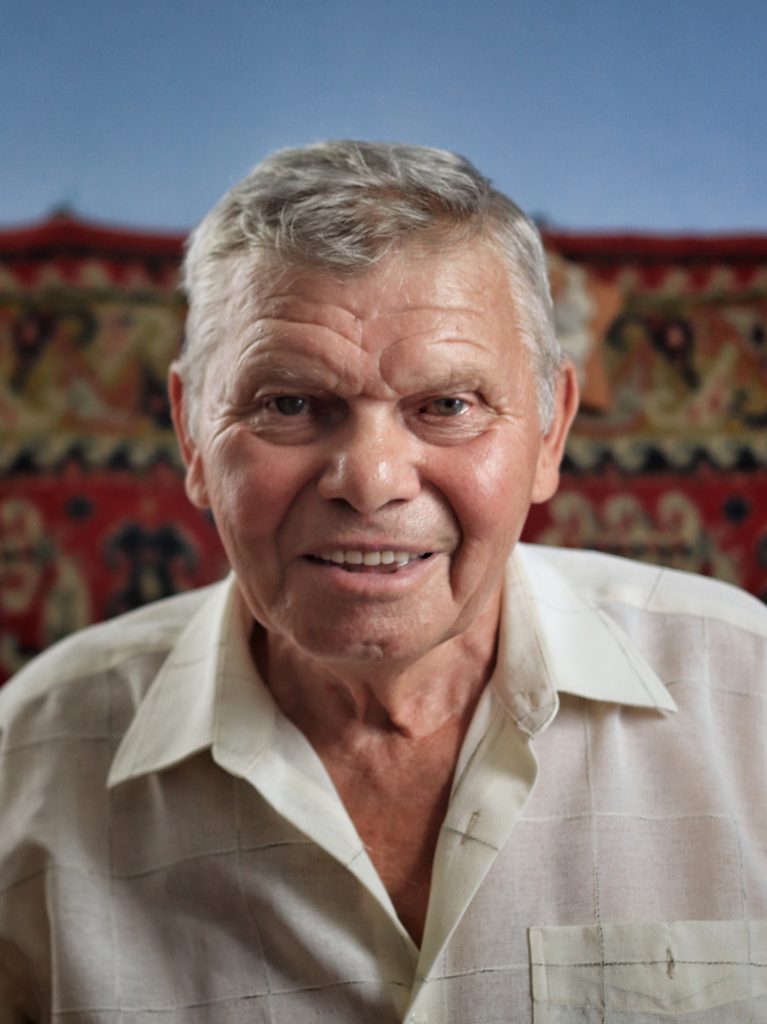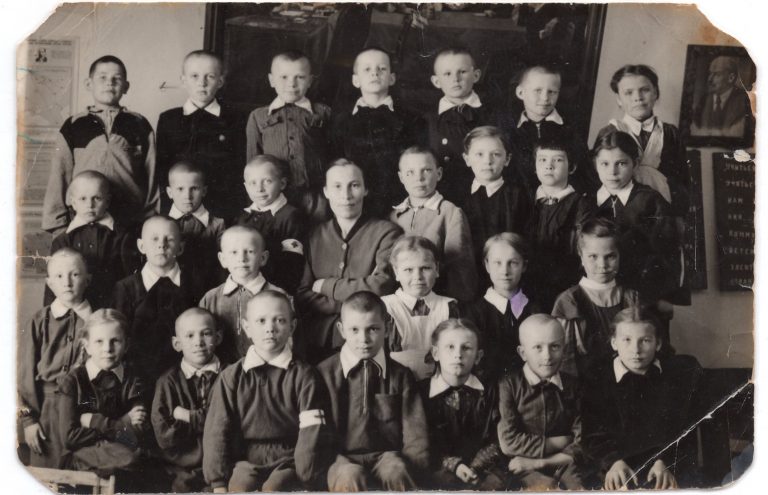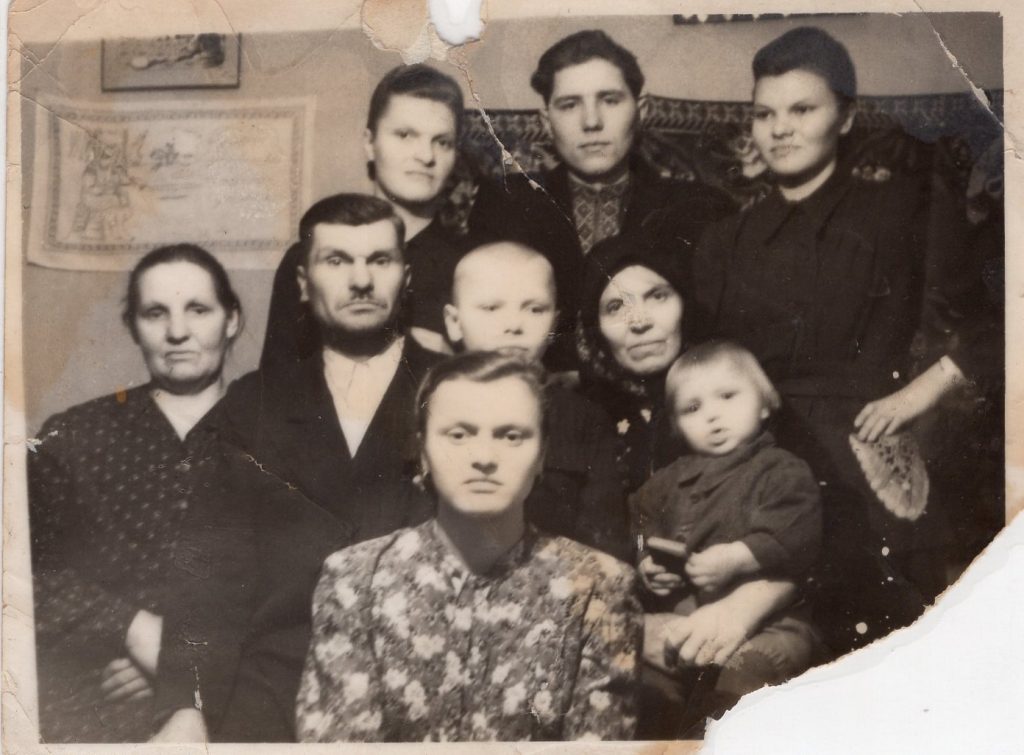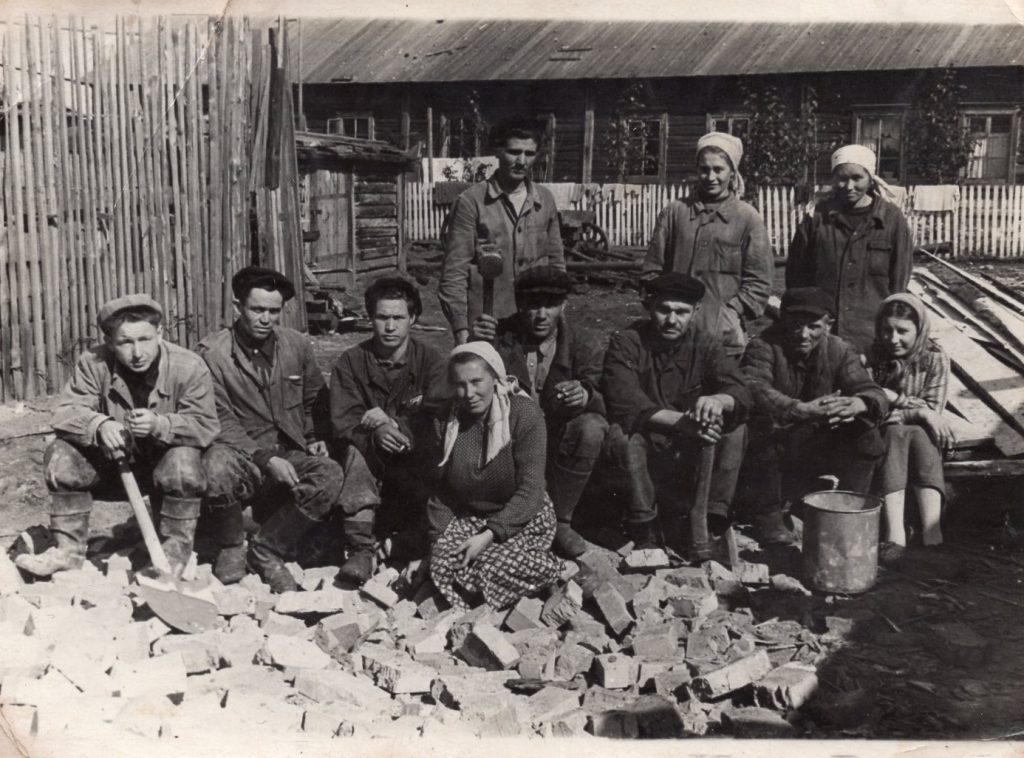Bohdan Kostelnyi

He was born on October 24, 1945, in the village of Tuchapy. He does not remember his childhood before eviction.
Before 1947, the family of Mykhailo and Kateryna (maiden name – Dembitska) Kostelni had six children: Fedir, born in 1928, UPA fighter, Anna, born in 1930, Mariya, born in 1933, Ivanna, born in 1935, Vasyl, born in 1942 and Bohdan, born in 1945.
The youngest son Bohdan does not remember his childhood in his native village, but he has memories of eviction – they were passed on to him by relatives:
“Somewhere in [19], 45, before I was born, our house in the village burned down. A cartridge hit the house and caught fire, and the house burned down. They burned down the house, our house. The Muscovites came. And my mother already gave birth to me there, in this, in her parents’ house, in that other house they had. Well, my dad had already built a new house, they already had to move into that new house. In [19] the 47th year (they) arrived and took us to Siberia. It was some time in October, I was 2 years old.”
During the eviction, the parents decided to hide one of the daughters – twelve-year-old Ivanka: “The parents hid her. They thought at least she would survive. Who knew, maybe we were taken to get killed later. And they say, “Come on – she says – at least one will [will survive]”. In addition to sister Ivanka, the parents wanted to hide another son – Vasyl, who was 5 years old at the time – but they couldn’t leave the boy, because he was already in their documents: “(someone) came, counted everyone and said – there should be one more”. And he didn’t mention Ivanka. And he says: “okay, since he is not there…”, and they tried to take, there was one boy, well, he, he was a helper, he worked for us, for our dad. You know. Because my father had horses, cows, they were rich. And he says, “Then let’s take this boy.” And the other answered – “how can we take him?” So they took Vasyl in the end, they brought him.”
Thus, only Ivanka Kostelna remained in the village:
“And we were taken to Siberia, then Ivanka, who remained, the youngest [among the sisters], we left her at home. And she … everyone in that village was afraid to host [her] there. She went to different people: spent the night at one place, then spent the night at the other place. A girl 10 [12] years old, was wandering around. And then she left and said, “I’m going to the village council, I’ll take care of myself, I will let them take me to my parents as well.” And she was walking, and the priest Stupak met her on the street. And he asks, “Where are you going, baby?” And she answered – “I’m going to the village council.” “Come with me, my child” – and he took her. She stayed at Father Stupak’s place, he also had a girl, his daughter, she was born in the same year as Ivanka. And they became friends, and, and she said, “It was only there were I slept for the first time and ate properly.” And then, she said: “Because usually, I had something small, in a hurry…here and there…”, like that. And she stayed there for about six months, she lived with them.” After the family “settled down” in Siberia, “the parents had already written a letter [to people who went to Siberia] this and that, and they ask them to take her (the daughter) away with them and bring her to Siberia.”

(photo: school photo of the respondent, Yuzhnaya Mine, Prokopyevsk, Kemerovo region, May 7, 1955. Respondent last row, third from the left)
TO BECOME MINERS
In Siberia, the family was deported to a special settlement, near the Yuzhnaya mine, Spychenkovo station, Prokopyevsk city, Kemerovo region. Initially, the people who were brought there were housed in barracks converted from stables – “horses were taken away, and people were housed in stables” – “and there were two makeshift stoveі for the whole stable”. Later, two years later, they were forced to live in barracks: “It was somehow easier in the barracks. There were walls, and it was warmer. And there was a stove, and we received the coal to burn in the stove, in this barracks”.
In the settlement where the Kostelni family lived, the mine determined many aspects of daily life – hygiene, food, leisure:
“The eldest Hanya is a 16-year-old girl, she was made to work in the mine. All the girls who the elders were made to work in the mine… They worked. She walked, she walked out of the mine, and there was a slope, and while she was walking to change clothes in the bath there, the foot wraps got frozen on her legs… It was more than -50 C degrees, you know.”
“Sisters, my sister Hania, she worked in the mine, there was no food, she went down to the mine and then up. She earned some money. And then she was trying to make some money here, she was buying something. And then Hania received better food, because, she went to work in the mine, you know.”
“We had kitchens, we had kitchens, and… And we were given some coal. And that coal was like, there was like… When you put it in the (stove), it was heating, and we cooked, and we had a kitchen there, you know. But in the summer… Summer is hot there, all summers. It’s 3 months of summer there, well, it’s so hot, it’s impossible to handle. Then we worked around the barracks. The men built a huge kitchen, it was so wide, so it could have a place for all the pots and cutlery. And they built a roof, and a bench, and a table. And men came from work and every woman there called was cooking some food for them to eat, and like that”.
“In the summer, we went fishing, and… and constantly ran from one pond to another. There were ponds at the abandoned mines. There were landslides, and there was water which created many ponds, it wasn’t just a river there.”
However, the mine, as well as the technologies used there, were very dangerous:
“Many of our people were killed in the mine because the mines were not like… Everything was carried inside the mine, horses were used there, there was a large horse yard with many horses.”
“In the mine, my brother-in-law died in 1956.”
Bohdan Kostelnyi also became a miner:
“But in Siberia, in the Donbas, I was already a gentleman in the Donbas, in [19] 62 I went to work at the mine there as a student, you know. And went to the night school, to the 8th grade. Because, I thought I needed my own money, rather than take my parents’. I thought I’d buy, I’d immediately buy myself a pair of pants, a pair of shoes. Then I bought a tape recorder right away. I was a fancy man, you know.”
(photo of the brigade, the first on the left with a shovel – Stepan Prytula)

RETURN TO UKRAINE
The mine also determined the place of return in Ukraine. After Stalin’s death, the family was relieved of the need to live in Siberia, but they were forbidden to return to their native village. In 1959 they decided to move to the Donetsk region – to the settlement of Belytskyi, Dobropol district to the mine named after the 21st Congress of the CPSU:
“I say, they opened a new mine there, in Donbas, and there, and then one of our acquaintances went there, and that’s it, and started writing letters about the place, like that. And he started to gather [invite] others, and we came from Siberia, many, many of us, to Donbas, to that settlement”.
(family photo, Prokopyevsk, Kemerovo region)
In the Donetsk region, Bohdan Kostelnyi graduated from an eight-year evening school, received a passport, and was drafted into the army. After returning from the army, his father told him, “Let’s go buy that house.” In 1969 the parents moved to the village Rodatychi, near the Tuchapy village. Bohdan went to Kalush:
“And they bought a house in Rodatychi. And I went to Kalush, there was a newly opened chemical plant. I was an electrician. There, I, I advanced in that job, I passed the sixth level of qualification.”
After Kalush, he decided to return closer to his parents – he lived in Lviv, worked as an electrician and welder:
“And I worked on the construction site, I was, I had a team, I had, I was a foreman, an electrician, a welder. You know. And I was working a lot, I did. My children always had everything needed, I knew how to earn money, I didn’t sit and wait when someone would give me something. I watched. And if the salary wasn’t okay, I quit, without any problems. I have never had any enemies in my life, I have not had any problems either with the bosses or with the workers there. I, somehow I was so lucky with bosses, I don’t know. Because I found common ground with everyone. It was so easy for me in life. And the salary was normal and this, and that.”
Now Bohdan Kostelnyi lives in the village of Tuchapy.

